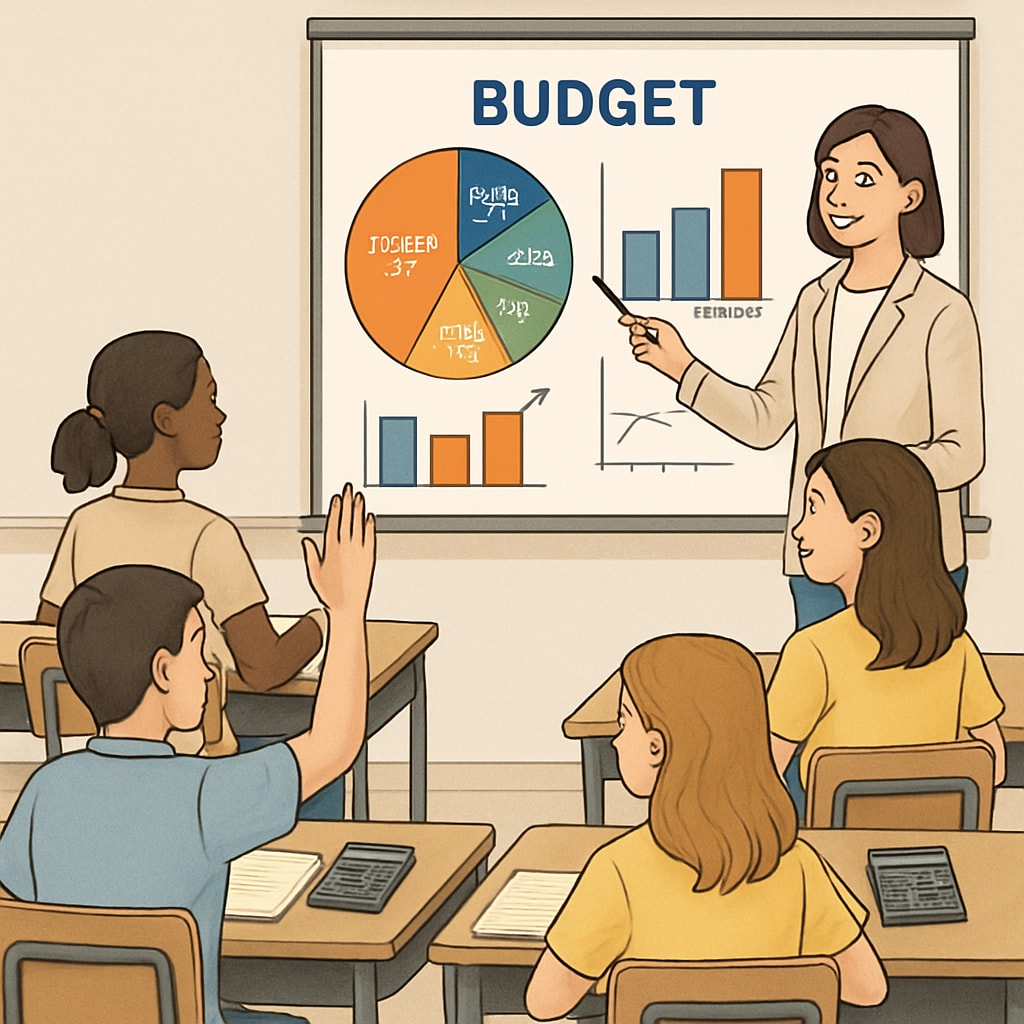In today’s rapidly evolving world, “financial literacy, time management, school curriculum” are not just optional skills—they are essential tools for navigating adulthood. Yet, many K12 schools focus primarily on academic knowledge, leaving practical life skills like budgeting, saving, and effective time prioritization unaddressed. This gap in education leaves students unprepared for real-world challenges. To bridge this divide, schools must integrate financial literacy and time management into their core curricula, equipping students with the knowledge they need to thrive in their personal and professional lives.
Why Financial Literacy is a Must for Modern Education
Financial literacy is the ability to understand and manage personal finances effectively. Skills like budgeting, saving, investing, and understanding credit are critical but often missing from traditional school programs. A lack of financial education can lead to poor financial decisions, resulting in debt, stress, and limited opportunities for growth.
According to a report on financial literacy, individuals who receive financial education early in life are more likely to make informed decisions about their money. For example, they are better equipped to understand interest rates, develop emergency funds, and avoid high-interest debt traps. Teaching these skills in schools ensures students have a strong foundation to build financial independence.

The Overlooked Role of Time Management in Student Success
Time management is another critical life skill that often goes untaught in schools. Students face multiple responsibilities, including homework, extracurricular activities, and personal interests. Without proper time management skills, they may struggle with procrastination, stress, and burnout.
Incorporating time management into school curricula can teach students how to prioritize tasks, set achievable goals, and develop long-term planning habits. These skills not only improve academic performance but also prepare students for the demands of higher education and future careers. A study on time management highlights its positive impact on productivity and mental health, making it an invaluable skill for all ages.

How Schools Can Integrate Financial Literacy and Time Management
Integrating these skills into K12 curricula may seem challenging, but it can be achieved through innovative and practical methods:
- Dedicated Courses: Schools can introduce standalone courses on financial literacy and time management, covering topics like budgeting, goal-setting, and effective scheduling.
- Interdisciplinary Approach: These skills can be woven into existing subjects. For instance, math classes can include budgeting exercises, while project-based assignments in other subjects can emphasize time management.
- Real-Life Simulations: Activities like managing a mock budget or planning a week-long project timeline can make learning engaging and applicable.
- Parental Involvement: Encouraging parents to reinforce these skills at home can create a consistent learning environment.
By adopting these strategies, schools can ensure students leave the education system not only academically competent but also practically prepared for adulthood.
The Long-Term Benefits of Practical Education
Incorporating financial literacy and time management into school curricula has far-reaching benefits. Students learn to make informed decisions, reduce stress, and achieve personal and professional goals. These skills also contribute to societal benefits, such as reduced financial inequality and increased productivity.
As educators and policymakers seek to improve the education system, prioritizing practical skills like financial literacy and time management is a step in the right direction. When students are equipped with these essential tools, they are better prepared to navigate the challenges of adulthood and contribute meaningfully to their communities.
In conclusion, the inclusion of “financial literacy, time management, school curriculum” in K12 education is not just an option—it is a necessity for building a future-ready generation.


